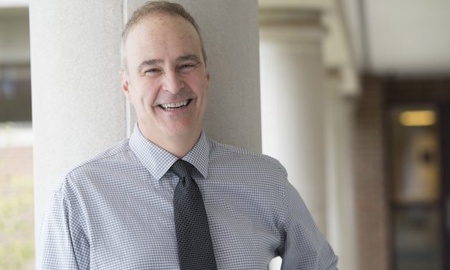This is a past event
AUCEL Energy Seminar Series 2021-2022
Abstract
In a quickly accelerating phenomenon, private corporations the world over, including the major energy and energy service companies, have been pressured by stakeholders to act outside of government intervention to increase sustainability, particularly to reduce their net GHG emissions. Since 2019, “sufficient action” to satisfy consumers, investors, and funders has moved from simply acknowledging climate change impacts, to specifically disclosing climate related financial risks, to planning for a “net zero” future by 2050.
Powering this is a combination of public pressure by large equity holdings to provide information with respect to the energy transition, the increasing demand for consistency and reliability of that information, and the interaction of this pressure with financial disclosure laws.
Government and regulatory response is also evolving quickly. The EU has issued a directive on “non-financial” disclosure relating to climate which is being adopted by countries across the EU and Europe, and the Securities and Exchange Commission in the US has indicated that it will start demanding more information on climate financial risks in annual forms filed by companies traded in the US.
While this evolution is occurring around the world, because of its concentration of capital and corporate headquarters and comparative lack of specific climate legal requirements, the evolution in the US is of particular note. In the US, energy companies and energy service companies must contend with consumer and shareholder pressures and how they interact with increasing legal and financial risk related to GHG emissions. This presentation will examine the evolving shareholder pressure on energy companies in the US (related to these companies current and future financial performance) and specifically describe the legal areas in which this pressure is accelerated, from climate litigation under tort, to consumer protection laws, to financial disclosure laws and shareholder derivative lawsuits.
Speaker
Professor Victor B. Flatt returned to the University of Houston in 2017 as the Dwight Olds Professor of Law and is the Faculty Co-Director of the Environment, Energy, and Natural Resources (EENR) Center. He also holds an appointment as a Distinguished Scholar of Carbon Markets at the University of Houston’s Gutierrez Energy Management Institute. He was previously the inaugural O’Quinn Chair in Environmental Law at UHLC from 2002-2009.Professor Flatt is a recognized expert on environmental law, climate law, and energy law, and the intersection of these areas. Since 2019, he has created and taught the first law school courses in the country concerning how law relates to sustainability planning and ESG policies in corporations, offering the courses at UHLC, Vermont Law School, and University of Utah Law School.His research focuses on environmental legislation and enforcement, with particular expertise in the Clean Air Act, NEPA, and Climate. He is co-author of a popular environmental law casebook, and has authored more than 50 law review articles, which have appeared in journals such as the Notre Dame Law Review, Ecology Law Quarterly, The Ohio State Law Journal, Washington Law Review, Houston Law Review and the Carolina Law Review. Seven of his articles have been recognized as finalists or winner of the best environmental law review article of the year, and one was recognized by Vanderbilt University Law School and the Environmental Law Institute as one of the three best environmental articles of 2010, leading to a seminar and panel on the article in a Congressional staff briefing.
- Speaker
- Victor Flatt
- Hosted by
- Aberdeen University Centre for Energy Law
- Venue
- MS Teams (link via booking form below)
- Contact

